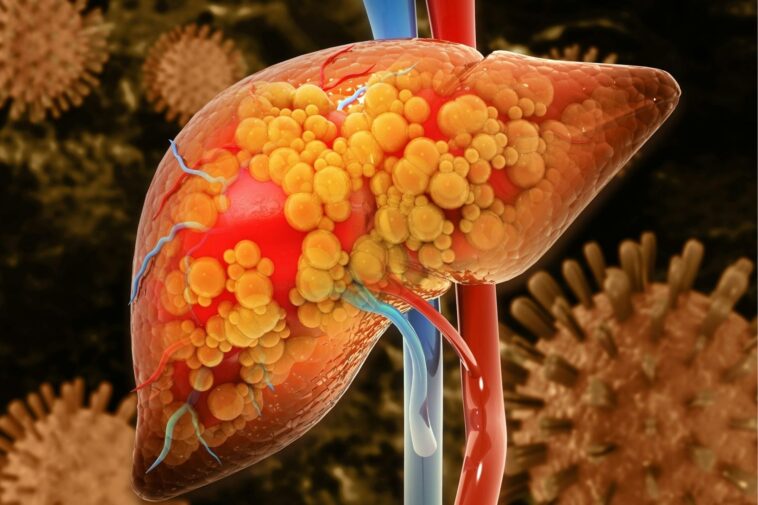Your liver is one of the most vital organs in your body, working day and night to filter out toxins, process nutrients, and keep you healthy. However, when it becomes overloaded with toxins, it can struggle to perform its job effectively. This can lead to various health issues that are easy to overlook but could indicate that your liver needs help.
In this article, we’ll explore six warning signs that suggest your liver is full of toxins. Being aware of these symptoms can help you take the right steps to improve your liver health and overall well-being.
1. Chronic Fatigue
One of the most common and early signs of liver toxicity is chronic fatigue. If you’re constantly feeling tired, even after getting a good night’s sleep, it could be a signal that your liver is struggling. The liver plays a crucial role in detoxifying the blood and breaking down toxins. When it’s overwhelmed, the body can become sluggish, leading to persistent tiredness.
This fatigue is different from simply feeling tired after a long day. It’s more like an ongoing sense of exhaustion that doesn’t seem to go away. When the liver is overloaded with toxins, it spends more energy processing them, leaving less energy for other functions, making you feel drained.
2. Unexplained Weight Gain
Are you finding it difficult to lose weight despite eating right and exercising regularly? An overloaded liver could be the culprit. When the liver is full of toxins, it cannot effectively process fat, leading to weight gain. Additionally, toxins stored in fat cells can make it even harder for your body to shed extra pounds.
If you’re putting in the effort to live a healthy lifestyle but the scale won’t budge, it might be time to consider the health of your liver. Detoxifying the liver can help it function better, making it easier for you to manage your weight.
3. Digestive Problems
Your liver plays a major role in digestion, especially in the production of bile, which helps break down fats. When the liver is clogged with toxins, bile production slows down, and this can lead to digestive issues such as bloating, constipation, or diarrhea. If you notice frequent indigestion, it could be a sign that your liver needs attention.
Another digestive problem linked to liver toxicity is the sensation of nausea, especially after eating fatty meals. The inability of the liver to process fats properly makes it hard for your stomach to digest food, leading to discomfort.
4. Skin Issues and Rashes
The health of your liver often shows up in your skin. If your liver is overloaded with toxins, it may struggle to filter the blood properly, and those toxins can make their way to the surface of your skin. This can cause various skin issues like rashes, acne, eczema, or even itching without a clear reason.
Skin problems that don’t respond to regular treatments or keep coming back can be a sign of internal toxicity. By improving liver function, many people see a marked improvement in their skin health as the body becomes more efficient at eliminating toxins.
5. Dark Urine and Pale Stool
Changes in the color of your urine or stool can be direct indicators of liver function. Dark urine, even when you’re well-hydrated, can be a sign that your liver is not processing toxins properly. On the other hand, pale or clay-colored stool suggests that bile production has decreased, another warning that your liver is under stress.
If these changes in urine or stool color are consistent and accompanied by other symptoms, it’s a good idea to consult with a healthcare professional. These signs shouldn’t be ignored, as they often point to more serious liver issues.
6. Frequent Headaches
Do you often find yourself suffering from headaches? This could be due to liver toxicity. When the liver is overwhelmed by toxins, it can’t properly filter blood, and toxins begin to circulate in the bloodstream. These toxins can affect the brain and cause recurring headaches or even migraines.
The connection between liver health and headaches isn’t always obvious, but it’s important to recognize that a clean, functioning liver helps prevent the build-up of toxins in the body. Reducing the toxic load on your liver may help lessen the frequency and intensity of headaches.
How to Support Your Liver Health
If you’ve noticed any of these signs, it might be time to give your liver a break and support its detoxification process. Here are a few ways you can help your liver stay healthy:
- Eat a balanced diet rich in fruits, vegetables, and whole grains to support liver function.
- Limit alcohol consumption, as alcohol is a major source of liver toxins.
- Stay hydrated, as water helps flush toxins out of your body.
- Exercise regularly, which promotes healthy blood circulation and aids detoxification.
- Consider supplements like milk thistle, which has been shown to help protect the liver and improve its function.
By paying attention to these warning signs and taking proactive steps, you can support your liver and prevent further health complications.
Your liver works tirelessly to keep you healthy, but it can become overwhelmed with toxins. Recognizing the warning signs of liver toxicity, such as chronic fatigue, unexplained weight gain, and digestive issues, is crucial for maintaining good health. By making small changes to your lifestyle and diet, you can improve your liver function and keep your body running smoothly.
Don’t wait for symptoms to worsen take action now to protect your liver and enhance your overall well-being!


